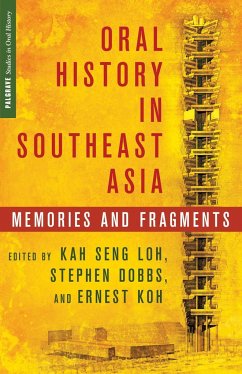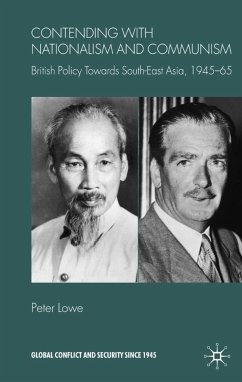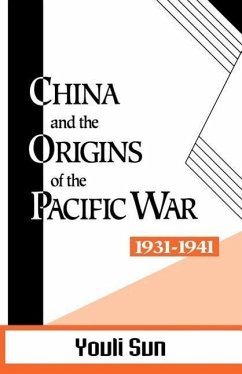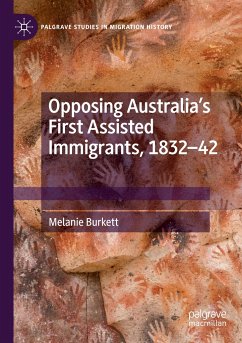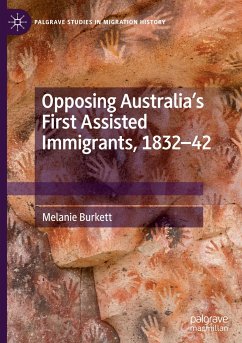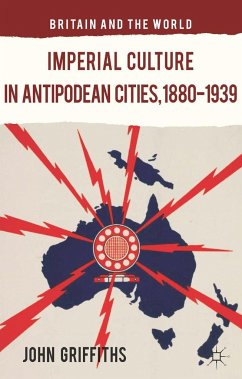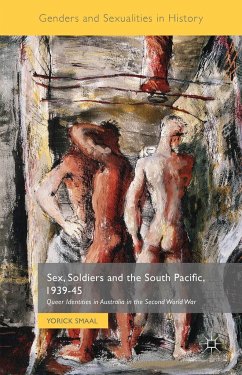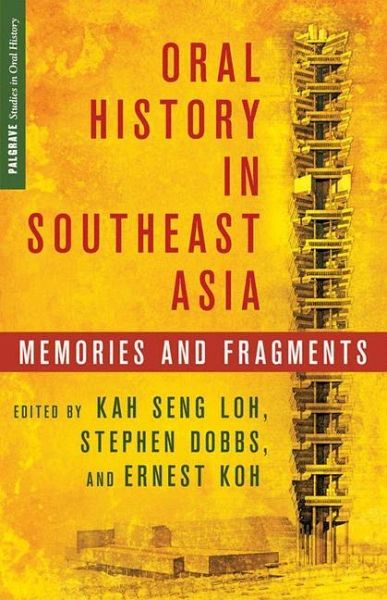
Broschiertes Buch
Oral History in Southeast Asia
Memories and Fragments
Herausgegeben: Loh, K.; Dobbs, S.; Koh, E.
Versandkostenfrei!
Versandfertig in 6-10 Tagen

PAYBACK Punkte
21 °P sammeln!





Using the presence of the past as a point of departure, this books explores three critical themes in Southeast Asian oral history: the relationship between oral history and official histories produced by nation-states; the nature of memories of violence; and intersections between oral history, oral tradition, and heritage discourses.
Kah Seng Loh is Assistant Professor at the Institute for East Asian Studies, Sogang University. He is author of The University Socialist Club and the Contest for Malaya: Tangled Strands of Modernity (co-authored 2012) and Squatters into Citizens: The 1961 Bukit Ho Swee Fire and the Making of Modern Singapore (forthcoming in 2013). Stephen Dobbs is Associate Professor in Asian Studies at the University of Western Australia, Perth, Australia. He is author of The Singapore River: A Social History 1819-2002 (2002) and co-author of Engineers Engaging Community: Water and Energy (2013). Ernest Koh is Senior Lecturer in the School of Philosophical, Historical and International Studies at Monash University, Australia. He is author of Singapore Stories: Language, Class, and the Chinese of Singapore (2010) and Diaspora At War: The Chinese of Malaya between Empire and Nation 1937-1945 (forthcoming in 2013).
Produktdetails
- Palgrave Studies in Oral History
- Verlag: Palgrave Macmillan / Palgrave Macmillan US / Springer Palgrave Macmillan
- Artikelnr. des Verlages: 978-1-349-45703-8
- 1st ed. 2013
- Seitenzahl: 220
- Erscheinungstermin: 19. Juli 2013
- Englisch
- Abmessung: 229mm x 152mm x 13mm
- Gewicht: 328g
- ISBN-13: 9781349457038
- ISBN-10: 1349457035
- Artikelnr.: 45076542
Herstellerkennzeichnung
Palgrave Macmillan
Tiergartenstr. 17
69121 Heidelberg
ProductSafety@springernature.com
"The volume demonstrates the rich variety of oral history work taking place across Southeast Asia by historians, social scientists, local academics, activists and foreign researchers. ... As a collection, these contributions highlight the diversity of oral history work being undertaken in the region and provide much-needed insights into the peculiarities of oral history in Southeast Asia." (Nicole Lamb, Asian Studies Review, Vol. 40 (2), June, 2016)
'A pioneering attempt - the first I know of - to systematically explore the knowledge only available through oral accounts as opposed to written texts, official history, and newspapers. A brilliant and original invitation to re-imagine the craft of history itself and to re-tell the
'A pioneering attempt - the first I know of - to systematically explore the knowledge only available through oral accounts as opposed to written texts, official history, and newspapers. A brilliant and original invitation to re-imagine the craft of history itself and to re-tell the
Mehr anzeigen
history of Southeast Asia as it is spoken and remembered by those who lived it.' - James C. Scott, Sterling Professor of Political Science and Anthropology, Yale University, USA
'Southeast Asian regimes better think twice before becomingtoo comfortably smug in their belief that their citizens have been successfully (re)molded into docile subjects. As this wonderful collection of 'stories from below' indicate, individuals, families and communities from all over the region express opinions different from if not critical of official narratives. These are tales that have been ingeniously preserved and protected from repeated attempts by the state to make people forget about them.' - Patricio N. Abinales, University of Hawaii-Manoa, USA
'Southeast Asian regimes better think twice before becomingtoo comfortably smug in their belief that their citizens have been successfully (re)molded into docile subjects. As this wonderful collection of 'stories from below' indicate, individuals, families and communities from all over the region express opinions different from if not critical of official narratives. These are tales that have been ingeniously preserved and protected from repeated attempts by the state to make people forget about them.' - Patricio N. Abinales, University of Hawaii-Manoa, USA
Schließen
Für dieses Produkt wurde noch keine Bewertung abgegeben. Wir würden uns sehr freuen, wenn du die erste Bewertung schreibst!
Eine Bewertung schreiben
Eine Bewertung schreiben
Andere Kunden interessierten sich für




